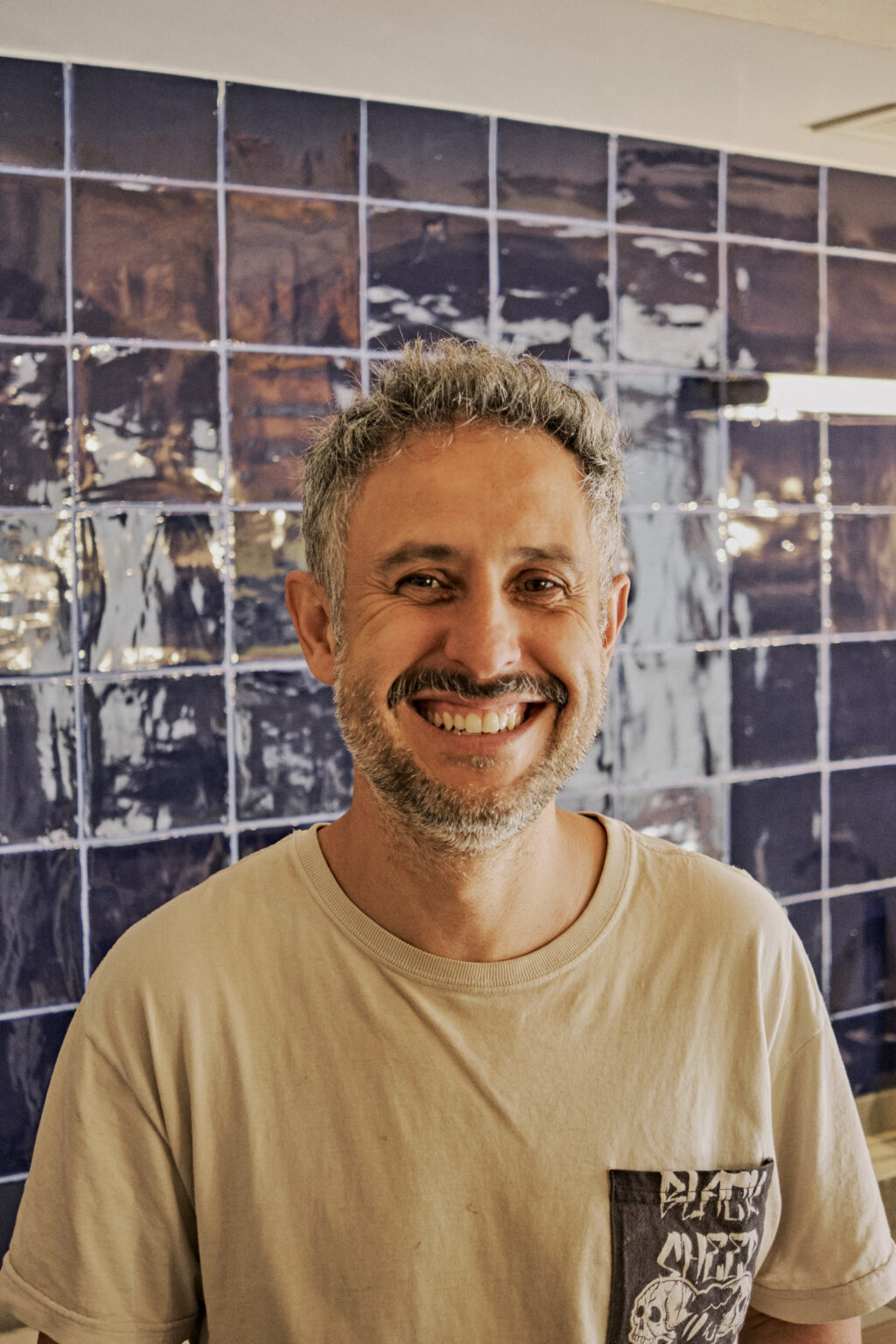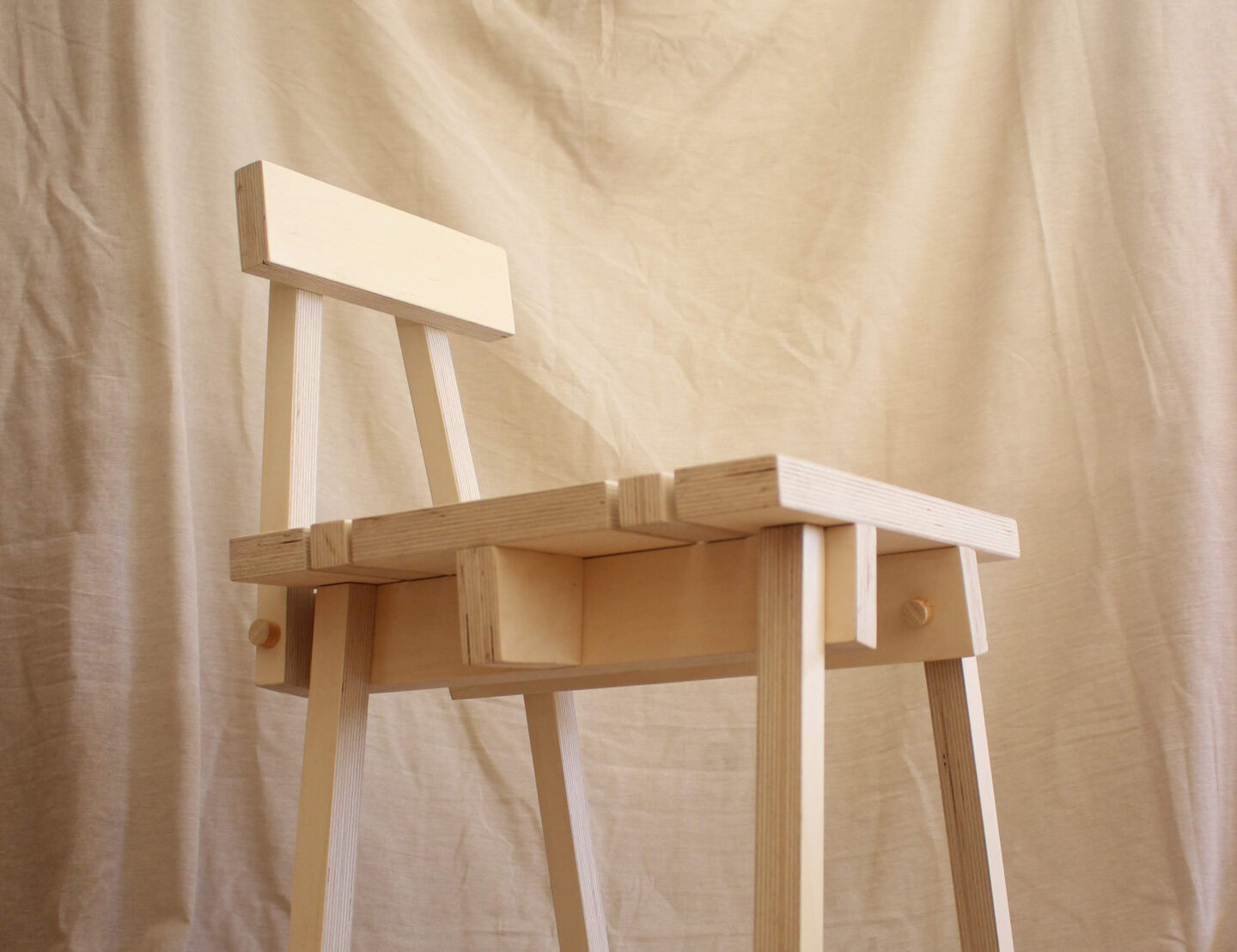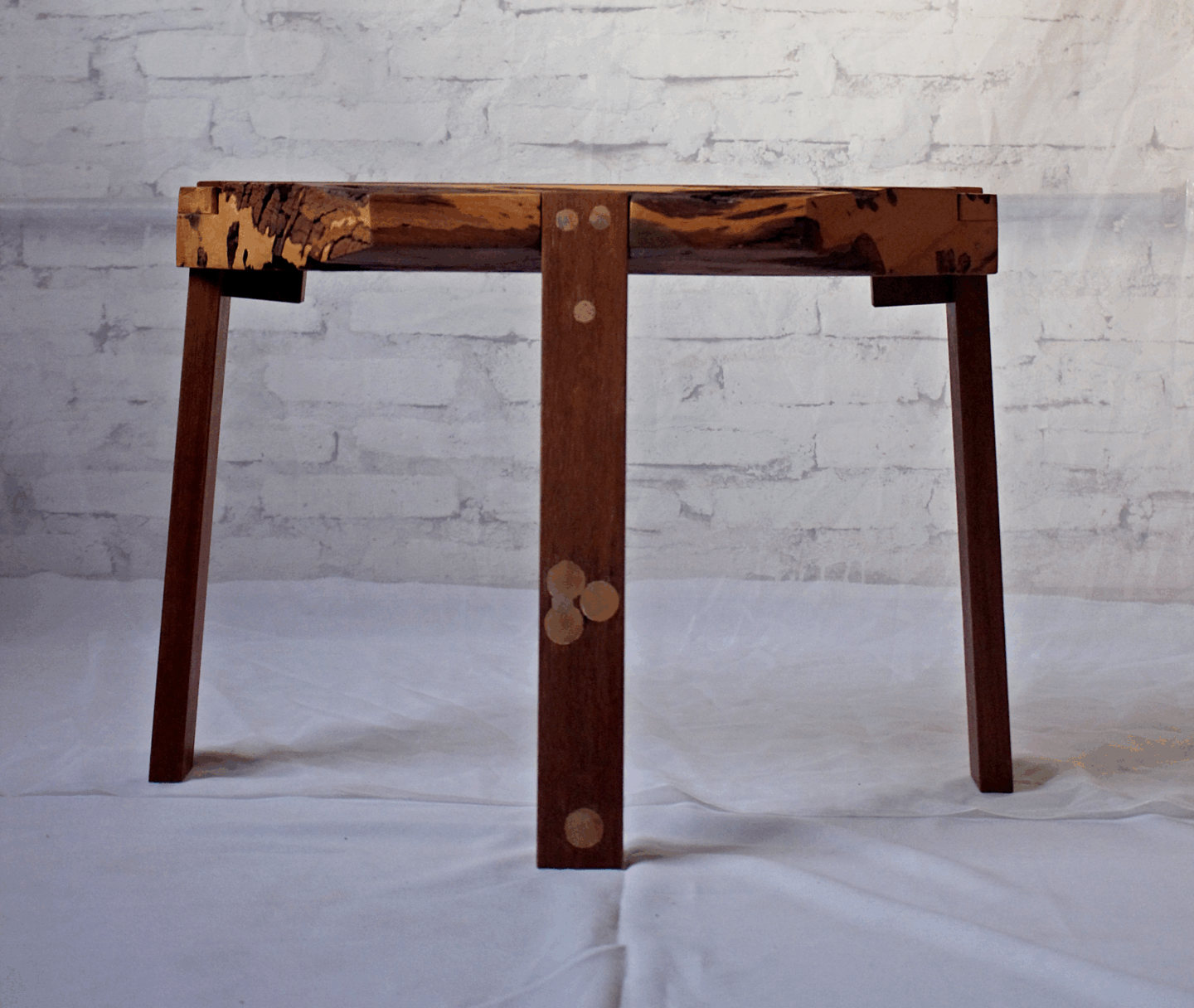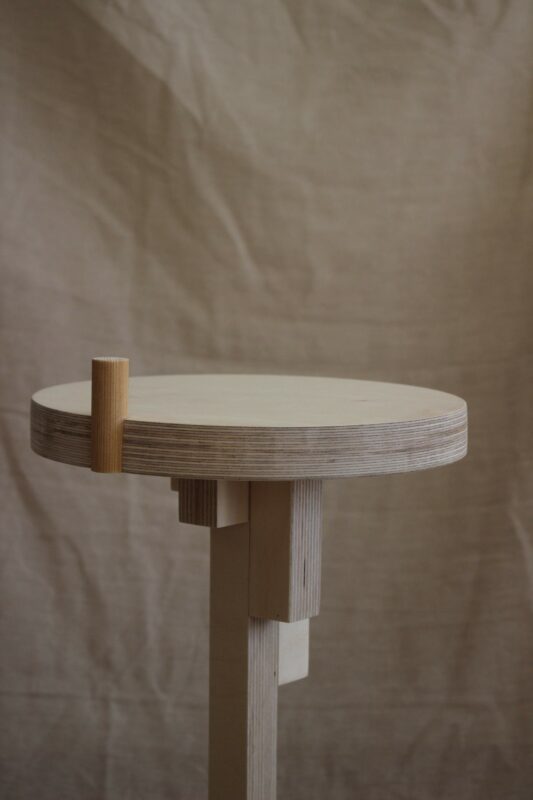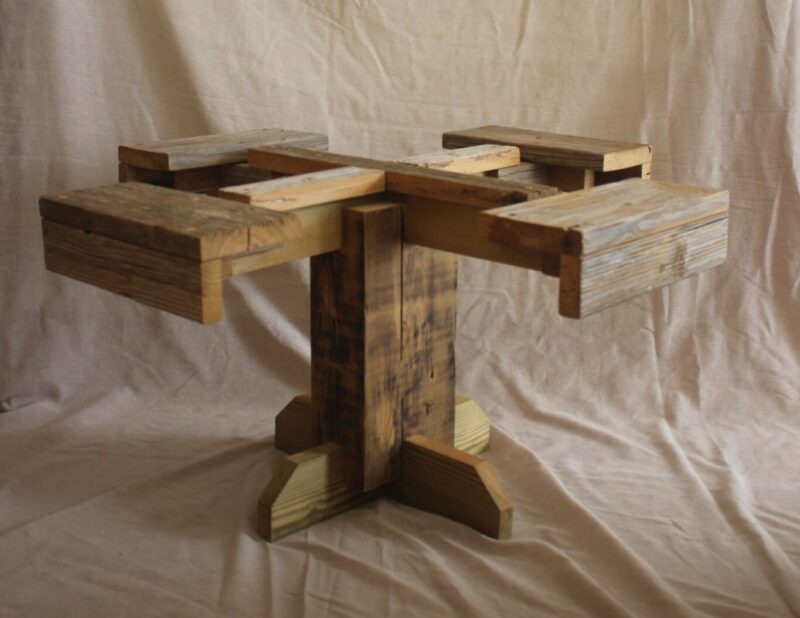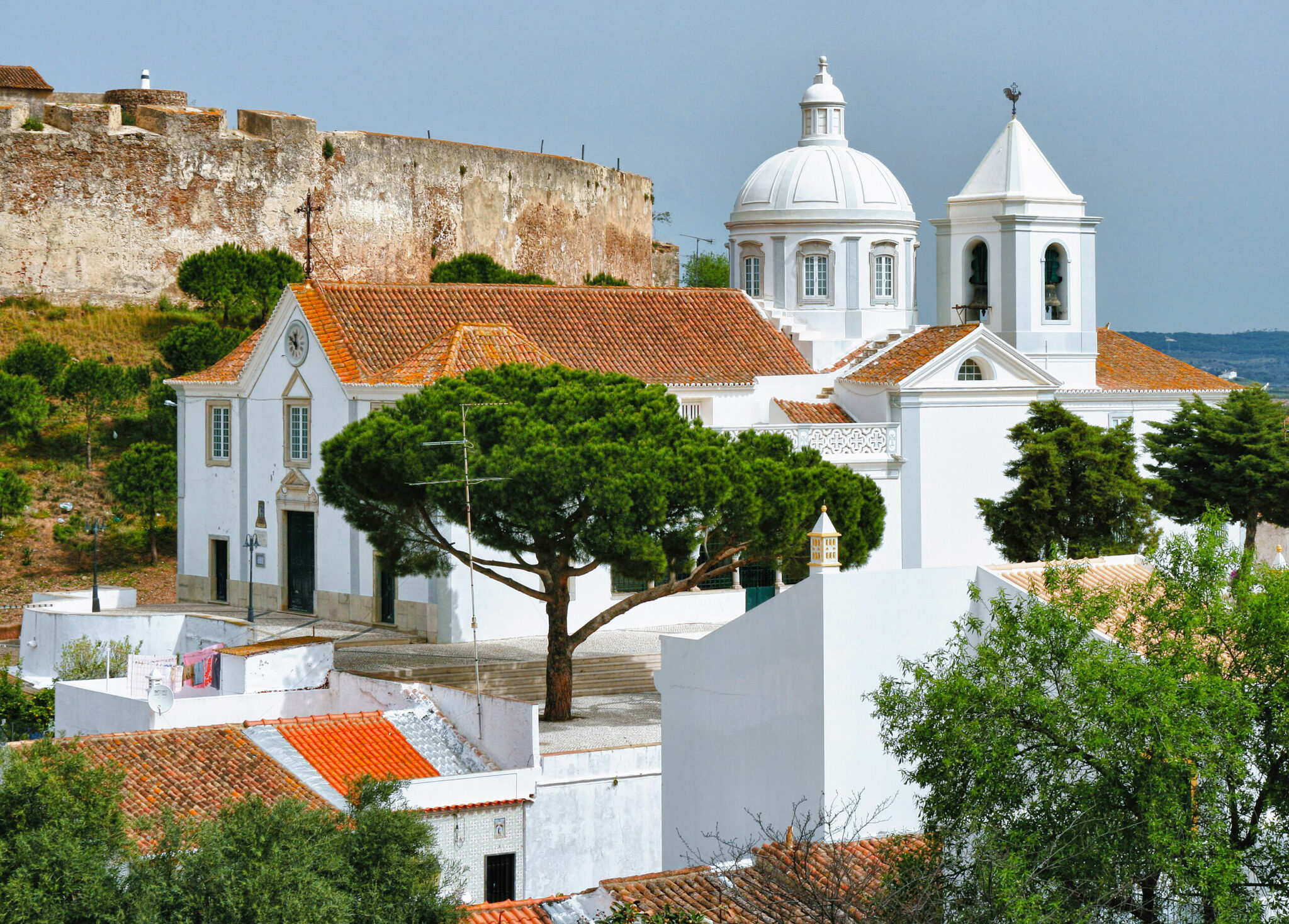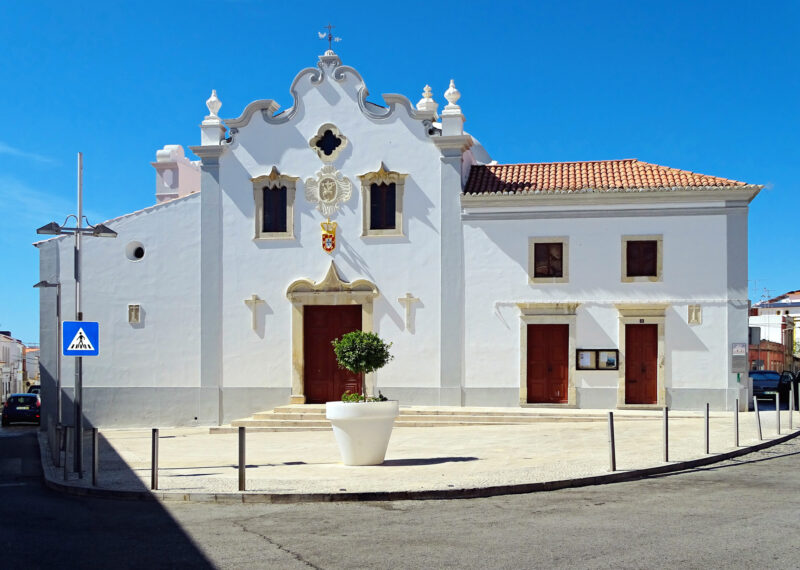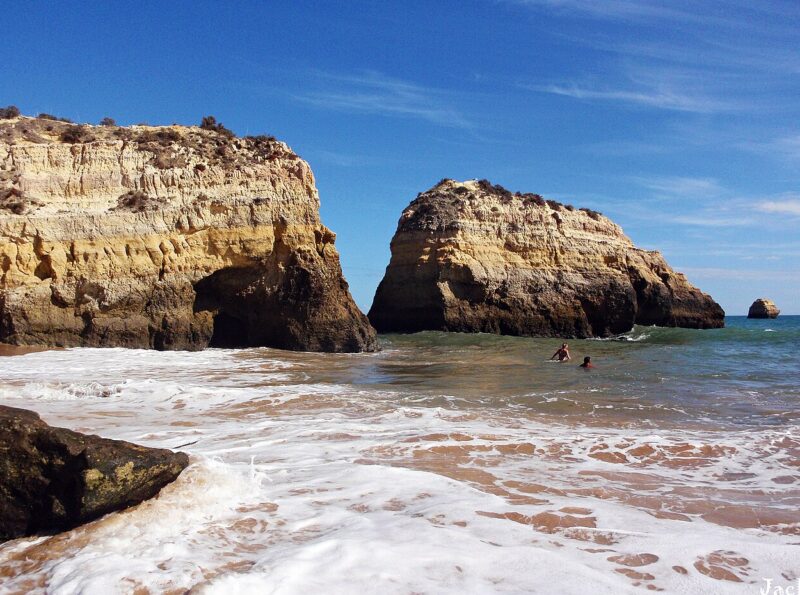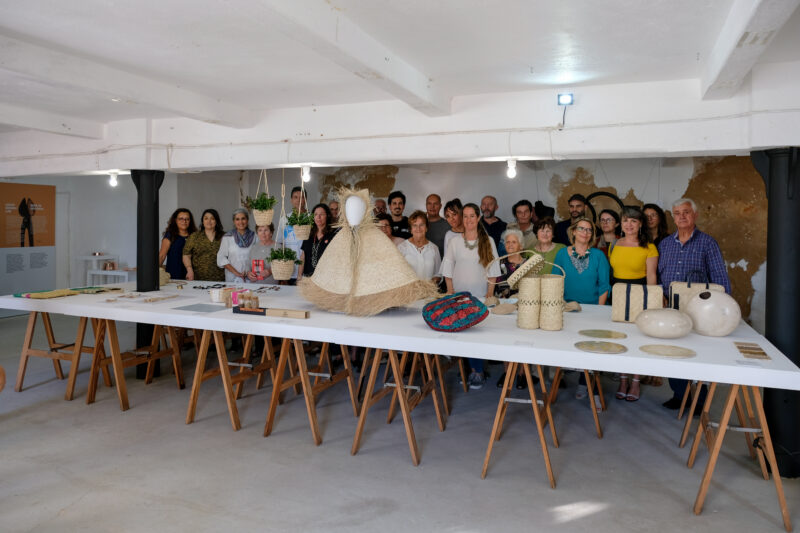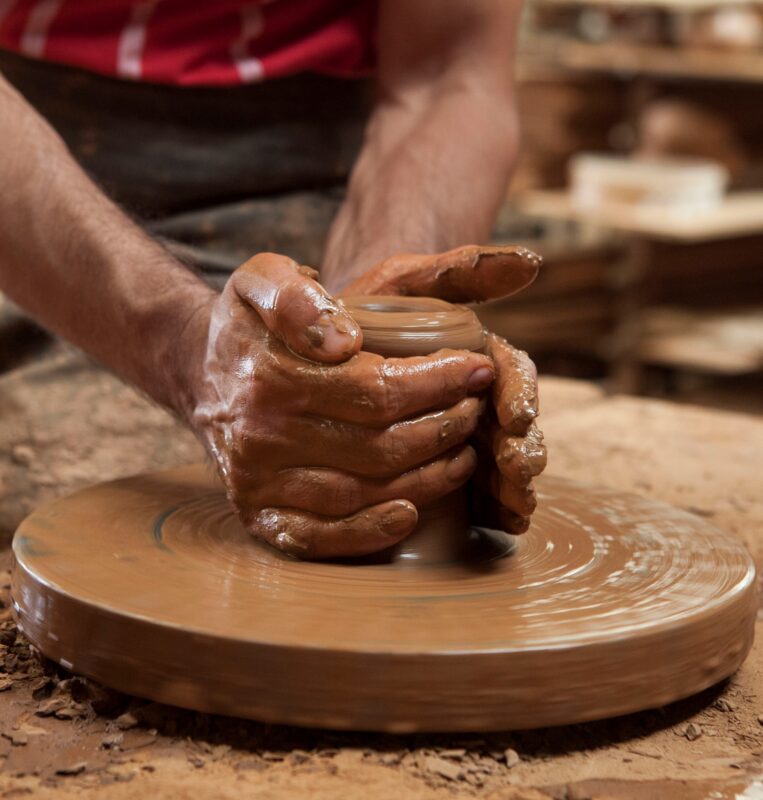Wesley Sacardi describes himself as an eternal learner—committed to free creativity and grounded craft. Working in solid wood, he creates pieces with visible knots, raw edges, and joinery that celebrates rather than hides its structure. Surfaces bear the grain’s natural rhythm, and marks of previous use are preserved like quiet memories.
Rooted in nature, architecture, and styles like Nordic, wabi-sabi, boho, and rustic, his work blends intuitive design with the character of reclaimed materials. The Descartes Series gathers these qualities into singular forms—tables and objects shaped by discarded wood, their imperfections transformed into points of beauty.
© Courtnesy of the artist
Which place do you currently call home and where do you work on your projects?
I live in Portugal in the city of Loulé, in the Algarve region. My work is in the same city and I’m art resident at Loulé Design Lab, which is part of Loulé Criativo.
Where is your studio located & how does it look?
I currently work in two workshops: The Loulé Criativo workshop, where I am doing my artistic residency, it is a shared space with other artists from different areas. It is an environment that allows me to develop my work live, and I am always in contact with visitors. This direct contact is excellent for presenting my work and engaging with the public. The workshop is located inside a historic building in Loulé, the Palácio Gama Lobo, which was remodeled about five years ago to become the headquarters of the Loulé Criativo project.
This workshop is special—in addition to being an inspiring space, it was the first place where I began producing my pieces. It is a place that allows me to experiment freely with raw materials and formats.
The second workshop is Oficina 33, a larger space, also in the city of Loulé. This workshop allows me to develop larger works, on a moderate scale. It is located close to the city center, but surrounded by green areas, which encourages creativity. The space is well-equipped and features another artist, Tiago Caldeira, with whom I develop work both in partnership and independently.
It is a very peaceful environment, which receives ample natural light, something essential for maintaining the connection with the outside.
© Courtnesy of the artist
Are there any projects that are personally important to you—whether recently completed or currently in progress?
My work is characterized by the use of discarded raw materials to create unique and functional pieces. The main collection is called “Série Descartes, além da matéria-prima” (Descartes Series, beyond the raw material) and gives rise to a creative branch called “Bigorna Fases”. The latter consists of a series of benches that share the same design, but explore different materials in their composition, which makes them unique. The creative line “Série Descartes, além da matéria-prima” (Descartes Series, beyond the raw material) has already participated in several exhibitions, the most recent being “O Ecoar da Matéria-Prima” (The Echo of Raw Material), currently on display at the Roca Lisboa Gallery, an initiative that was part of Lisbon Design Week. This exhibition was particularly special, because in addition to exhibiting my pieces, I also curated them, selecting Portuguese artists from all over the country who work with recovered materials. The “Bigorna Fases” collection will have an exhibition in August called “Bigorna Fases Words to Move and Sit”. This exhibition will explore the universe of letters and highlight the importance of dialogue through banks.
© Courtnesy of the artist
© Courtnesy of the artist
Do you have a favorite place in your area where you like to relax and linger?
I like to have contact with nature and in the region I have the option of the beach or the mountains.
I personally like to climb the peaks to relax, so I have the privilege of having a panoramic view of the ocean. A peak that I really like is Moinho das Estrelas and Cerro de Cabeça de Camara.
© Castro_Marim, Algarve region, Bert Kaufmann from Roermond, Netherlands, Castro Marim (6908442519), Adjusted colors and saturation, CC BY-SA 2.0
Are there any urgent political issues or problems in your region?
I am Brazilian and in recent years the political scenario in Brazil has been worrying, as this is the first time that the population has been divided over the country’s management models. This situation worsens the mood on both sides and the losers in the end are both of them, as they believe they can change the country’s situation based on their choice and canceling the other. It is a situation that does not reach any consensus and politicians continue to do the same thing, without worrying about the population and services. Thus, everyone remains the same, each one believing that they can change the country, no one listens to anyone to reach a consensus on what can be good in common for everyone. And every day that this situation gains strength, it becomes more complex to establish a balance in opinions and beliefs. Only dialogue, empathy and understanding can make a more balanced nation.
In your opinion, what has developed well in the last 5 years—and what has not?
In the Algarve region, what has improved a lot in recent years are investments in culture, mainly in the municipality of Loulé where I live.
In Loulé there is the MED festival (Mediterranean Music Festival) which takes place in the month of June, there is the Branco festival which takes place in October every two years, there is the art and crafts market, there are art galleries, there is the Loulé Criativo that promotes and maintains local traditions by incorporating innovation through artists and designers who do residency to develop new techniques. And as you pass through other municipalities in the region, you realize that this movement of investment in culture is constantly growing.
Unfortunately what is not good is the investment sector in public transport, alternative transport routes such as cycle paths that do not exist in the region. The public transport model is very outdated and does not connect cities in a practical way, which means you have to use your car for everything. Unfortunately, depending on public transport is bad, as well as being expensive.
© Jose A., Loule (Portugal) (42344232222), Crop, colors and perspective adjusted, CC BY 2.0
© Jose A., Praia da Rocha-Portimao (Portugal) (33471386816), CC BY 2.0
Do you know a hidden gem when it comes to local manufacturers—whether it’s arts and crafts, sustainable products or food?
Yes, there is the Sal Marim producer in the city of Castro Marim, where the visit to discover the salt flats goes beyond Sal; It’s an experience of history, culture and a lot of salt. And another place I really like is the Empreita house in Loulé, where the tradition of making different pieces using the straw braiding technique continues.
And there is the Prato Feio restaurant in Almancil, where every day the menu offers three different dish options following Portuguese cuisine.
Is there anything particularly innovative in your region? Also in comparison to other places you have already visited?
In the city of Loulé there is the Loulé Criativo project, which seeks to maintain local traditions of manual work, in addition to integrating this ancestry with today through partnerships with designers and artists of different nationalities. Particularly the Loulé Criativo project is a reference in the region and also for other countries, as in addition to integrating traditions, it remains up to date with global trends, which enriches the cultural scene.
Do you have a secret restaurant tip that you would like to share with us?
The Prato Feio restaurant is my favorite, because it always has three menu options that include fish, meat and vegetarian. The best thing is the price is around €15 and you also get a drink and dessert.
Is there a local shop whose products are only available in your region?
Yes, the Loulé Criativo store located in the Gama Lobo palace. There you can find unique pieces made by artisans and artists from the region.
© Câmara Municipal de Loulé, Loulé, Comunidade Criativa Loulé Criativo
© Câmara Municipal de Loulé, Loulé, Clay Workshop Loulé Criativo
What are your 3 favourite apps that you use every day and couldn’t live without?
Do you have any favourite newspapers or online magazines? And how do you keep up to date with politics or social and cultural issues?
I like reading the BBC online.
© Jose A., Loule (Portugal) (49836185578), CC BY 2.0
Imagine you could be mayor for a year—what would you change?
I would invest in public transport and cycle paths to complement travel and access to other cities. I would develop the cultural scholarship to encourage people who are not engaged with the topic to have access at no cost.
One last question: If you could choose another place to live—regardless of financial or time constrains—which one would you choose?
I would like to live in Copenhagen.
